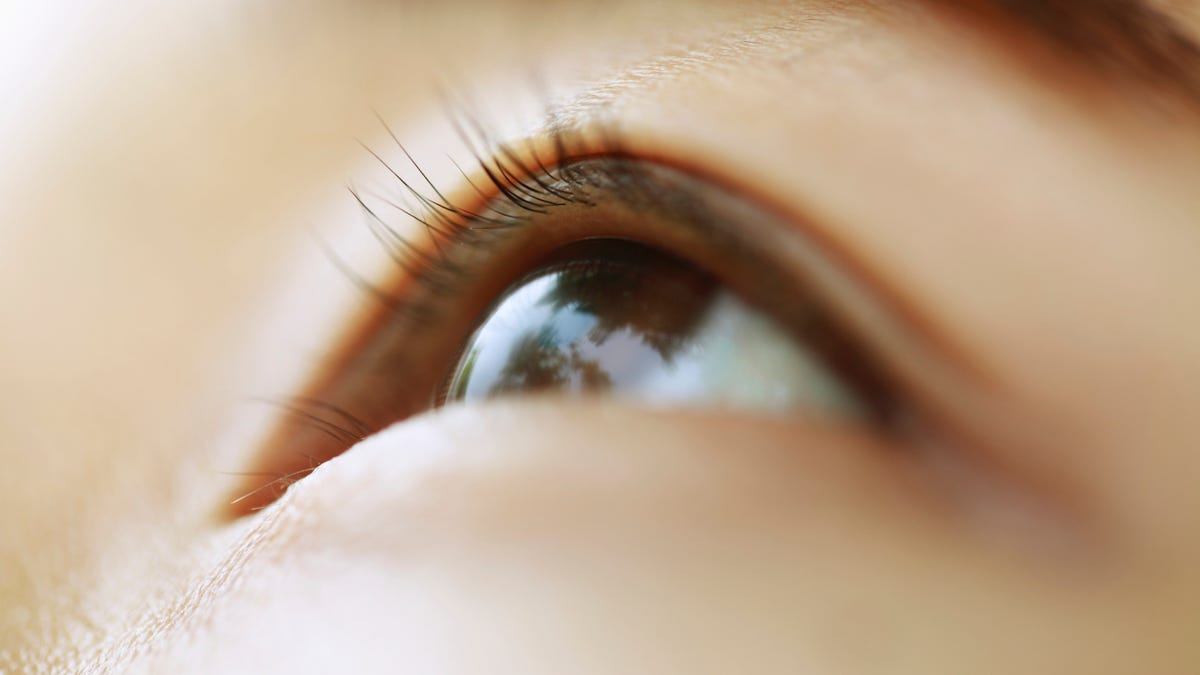Chưa có sản phẩm trong giỏ hàng.
Review sản phẩm
Cách tự nhiên chăm sóc sức khỏe mắt hàng ngày với 10 thói quen hấp dẫn
Giới thiệu Care for Your Eye Health Naturally With These 10 Daily Habits
Cải thiện sức khỏe mắt một cách tự nhiên với 10 thói quen hàng ngày này
#Đánh_Giá_Sản_Phẩm #Mua_Ngay_Queen_Mobile
Cùng Queen Mobile chăm sóc cho sức khỏe mắt tự nhiên với 10 thói quen hàng ngày
Hiện nay, với sự phát triển mạnh mẽ của công nghệ, việc sử dụng điện thoại di động và các thiết bị công nghệ khác đã trở nên không thể thiếu trong cuộc sống hàng ngày của chúng ta. Tuy nhiên, việc sử dụng thiết bị này liên tục có thể gây hại đến sức khỏe của mắt chúng ta. Vì vậy, chúng ta cần có những thói quen hàng ngày để chăm sóc sức khỏe mắt tự nhiên. Queen Mobile sẽ giúp bạn đánh giá sản phẩm và mua ngay những sản phẩm phù hợp để bảo vệ sức khỏe mắt của bạn.
Dưới đây là 10 thói quen hàng ngày để chăm sóc sức khỏe mắt:
1. Hạn chế việc sử dụng thiết bị công nghệ: Để cho mắt của bạn có thời gian nghỉ ngơi và phục hồi, hãy giảm thời gian sử dụng điện thoại di động và máy tính.
2. Bảo vệ mắt khi sử dụng thiết bị di động: Sử dụng màn hình cỡ lớn và đặt đèn nền ở mức ánh sáng nhẹ để tránh ánh sáng màu xanh gây tổn thương cho mắt.
3. Nghỉ mắt định kỳ: Hãy nghỉ mắt trong khoảng thời gian ngắn sau mỗi 20-30 phút sử dụng thiết bị công nghệ.
4. Bật chế độ ánh sáng yếu trên điện thoại và laptop: Điều chỉnh ánh sáng để làm mềm ánh sáng và giảm stress mắt.
5. Sử dụng đúng cách kính chống tia UV: Khi ra khỏi nhà, hãy đảm bảo bạn đeo kính chống tia UV để bảo vệ mắt khỏi ánh sáng mặt trời gây hại.
6. Ăn thức ăn giàu chất chống oxy hóa: Chế độ ăn uống lành mạnh, bao gồm các loại thực phẩm chứa nhiều vitamin A, C và E, có thể giúp làm gia tăng sức mạnh mắt.
7. Thực hiện các bài tập mắt: Bạn có thể tìm hiểu và thực hiện các bài tập đơn giản để giúp mắt thư giãn và tăng cường cơ mắt.
8. Giữ khoảng cách khi đọc và nhìn: Hãy giữ khoảng cách 30-40cm khi đọc sách và di chuyển mắt để có ánh nhìn rõ ràng hơn.
9. Đảm bảo giấc ngủ đủ: Ngủ đủ 7-8 giờ mỗi đêm để mắt được tiếp xúc với ánh sáng tối đa và phục hồi tốt.
10. Kiểm tra thường xuyên mắt: Điều quan trọng là để bảo vệ sức khỏe mắt của bạn là kiểm tra định kỳ để phát hiện và điều trị các vấn đề mắt sớm.
Hãy đánh giá sản phẩm và mua ngay tại Queen Mobile để tìm hiểu thêm về các sản phẩm chất lượng giúp chăm sóc và bảo vệ sức khỏe mắt của bạn. #QueenMobile #ChămSócMắt #SứcKhỏeMắt
Mua ngay sản phẩm tại Việt Nam:QUEEN MOBILE chuyên cung cấp điện thoại Iphone, máy tính bảng Ipad, đồng hồ Smartwatch và các phụ kiện APPLE và các giải pháp điện tử và nhà thông minh. Queen Mobile rất hân hạnh được phục vụ quý khách….
_____________________________________________________
Mua #Điện_thoại #iphone #ipad #macbook #samsung #xiaomi #poco #oppo #snapdragon giá tốt, hãy ghé [𝑸𝑼𝑬𝑬𝑵 𝑴𝑶𝑩𝑰𝑳𝑬] ✿ 149 Hòa Bình, phường Hiệp Tân, quận Tân Phú, TP HCM
✿ 402B, Hai Bà Trưng, P Tân Định, Q 1, HCM
✿ 287 đường 3/2 P 10, Q 10, HCM
Hotline (miễn phí) 19003190
Thu cũ đổi mới
Rẻ hơn hoàn tiền
Góp 0%
Thời gian làm việc: 9h – 21h.
KẾT LUẬN
Bài viết “Chăm sóc sức khỏe mắt tự nhiên với 10 thói quen hàng ngày” hướng dẫn người đọc về cách bảo vệ mắt một cách tự nhiên và kích thích họ mua hàng. Bài viết cung cấp 10 thói quen hàng ngày mà người đọc có thể thực hiện để duy trì sức khỏe mắt.
Các thói quen bao gồm việc ăn chế độ dinh dưỡng giàu vitamin và khoáng chất, như thực phẩm chứa vitamin A, C và E. Bài viết cũng khuyến khích người đọc uống đủ nước hàng ngày để duy trì sự đàn hồi của mắt.
Bài viết cũng tiếp cận việc thực hiện các bài tập mắt đơn giản như xoay mắt và nhìn xa gần để làm tăng tuần hoàn máu và giảm căng thẳng mắt.
Thêm vào đó, bài viết cung cấp các lời khuyên về việc hạn chế sử dụng điện thoại di động và máy tính để bảo vệ mắt khỏi ánh sáng xanh. Ngoài ra, người đọc cũng được khuyến khích đeo kính chống nắng khi ra khỏi nhà để bảo vệ mắt khỏi tác động của tia UV.
Cuối cùng, bài viết kết thúc bằng việc khuyến khích người đọc mua các sản phẩm chăm sóc mắt tự nhiên như thảo dược và thành phần tự nhiên để duy trì sức khỏe mắt trong tốt nhất.
Beyond having to wear glasses or contacts, vision problems can seriously affect your life over time. In fact, vision loss can lower your quality of life and raise your risk of depression, diabetes and other health issues, according to the US Centers for Disease Control and Prevention.
Practicing simple, daily habits can help you improve your eye health and reduce your risk of problems in the future.
Want more health tips? Check out Omega-3 Rich Foods That Offer Many Benefits for Heart, Hearing and Overall Health, Why Your Glasses Get Foggy and How to Stop It and The Right Color of Sunglasses for Eye Health.
Wear sunglasses
Exposing your eyes to ultraviolet rays may cause damage over time. Wearing sunglasses can block harmful UV light, lowering your risk of eye diseases like cataracts, sunburn, eye cancer and growths around the eye, per the American Academy of Ophthalmology. Polarized glasses with smoke or gray lenses may offer the best protection against the sun’s rays and reduce glare.
Take screen breaks
Prolonged screen time can cause dry eyes, pain in the neck and shoulders, blurred vision, headaches and digital eye strain, or computer vision syndrome. The American Optometric Association recommends using the 20-20-20 rule to prevent computer vision syndrome. Every 20 minutes, look at something at least 20 feet away for 20 seconds.
Take book breaks, too
Screen time isn’t the only way to strain your eyes. When you read a book, you probably hold it up close for long periods, too. Both activities can lead to nearsightedness, or myopia, which means far-away objects are blurry while up-close things are clear. Just like you should use the 20-20-20 rule to take screen breaks, you should also use this rule for book breaks. If you find yourself engrossed in what you’re reading or doing on the computer, set an alarm so you don’t miss your 20-minute break.
Move your body
Regular exercise can provide eye health benefits, such as promoting healthy blood vessels and lowering your risk of developing glaucoma and diabetic retinopathy, the AAO reports. The CDC recommends at least 150 minutes of moderate aerobic activity every week, plus two days of strength training for your muscles. You can also practice eye exercises to reduce tension and eye strain while sitting at your desk.
Read more: Sneak More Exercise Into Your Daily Routine: 7 Steps That Actually Work
Get outside
Children and adults need to get outside often, even if you get your recommended exercise indoors. Research shows that children who spend time outdoors have a lower risk of developing nearsightedness in adolescence and as adults. Playing with your kids at the local playground, walking through the woods or even playing in the backyard can help the whole family stay healthy and active. Don’t forget your sunglasses!
Don’t smoke
It’s well known that smoking is bad for your health. It can also increase your risk of developing eye diseases like cataracts or age-related macular degeneration, according to the Food and Drug Administration. Smokers have a two or three times higher chance of developing cataracts and up to four times higher risk for AMD. Future research may determine if smoking cigarettes can also cause glaucoma, Graves’ eye disease, thyroid eye disease and encourage diabetic retinopathy onset or progression. To improve your health, build a quit plan.
Eat balanced meals
The foods you eat every day can improve your eye health. Eating foods rich in vitamins A, C and E, beta-carotene, omega-3 fatty acids, lutein, zeaxanthin and zinc can help cellular growth, lower eye tissue inflammation and limit free radicals that can damage your eyes.
To get the right nutrients for your eyes, eat balanced meals by including some of these foods in your regular diet, recommended by the AAO:
- Vitamin A and beta-carotene: Apricots, carrots, cantaloupe, sweet potatoes, red pepper, ricotta cheese, mango
- Vitamin C: Grapefruit, oranges, lemons, tangerines, peaches, strawberries, tomatoes, red bell pepper
- Vitamin E: Avocados, almonds, peanut butter, wheat germ, sunflower seeds
- Omega-3: Halibut, sardines, salmon, tuna, trout
- Lutein and Zeaxanthin: Collards, broccoli, eggs, peas, kale, spinach, romaine lettuce, turnip greens
- Zinc: Lima beans, kidney beans, black-eyed peas, lean red meats, oysters, fortified cereals, poultry
Avoid rubbing your eyes
If you habitually rub your eyes, it could cause eye damage or infections. Dry eyes and eye strain can make you want to rub your eyes, and some may rub them too much or too hard. This can lead to issues such as reduced or blurry vision, headaches, inflammation, eye and light sensitivity. Another reason to avoid eye rubbing is that bacteria or viruses on your fingers or hands could lead to conjunctivitis, commonly called pink eye. Instead of rubbing your eyes, use eye drops or saline to clean your eyes and keep them moist. Resist the urge and find something else to keep your hands busy until you undo the habit.
Read more: 7 Home Remedies for Dry, Itchy Eyes
Wash your hands
You should always wash your hands before touching your face or eyes and handling contact lenses. Almost 45 million Americans wear contact lenses, and around 1 in 3 wearers develop complications, with 1 in 5 infections from contact lenses causing corneal damage.
Plus, there’s no telling what kind of germs are on objects you touch after someone unknowingly contaminated them. Washing your hands regularly can lower your risk of respiratory illness by up to 21% and diarrheal illness by up to 40%, the CDC reports.
Take off your makeup
After a long day, the last thing you might think about is removing your eye makeup before you get into bed. But doing so benefits your eye health and can lower your risk of blepharitis or eyelid inflammation, according to the Optometrists Network.
You should also adopt good makeup practices that can save your skin and eyes, such as only using products made for eyes, replacing your makeup often (especially after an eye infection), not applying eye makeup in the inner lids and never sharing eye makeup with someone else. If you use brushes or sponges to apply eye makeup, wash them regularly.


